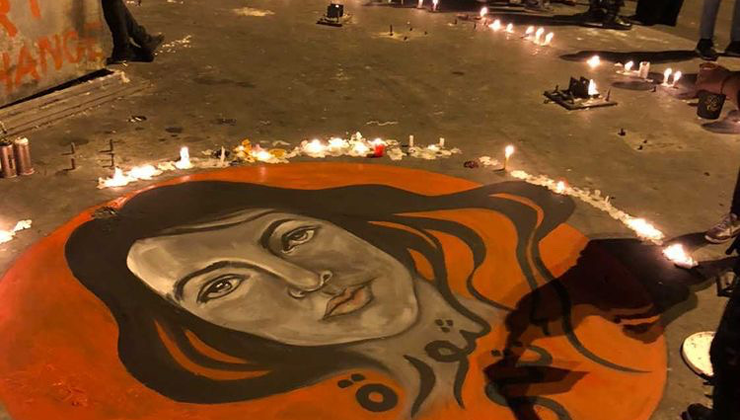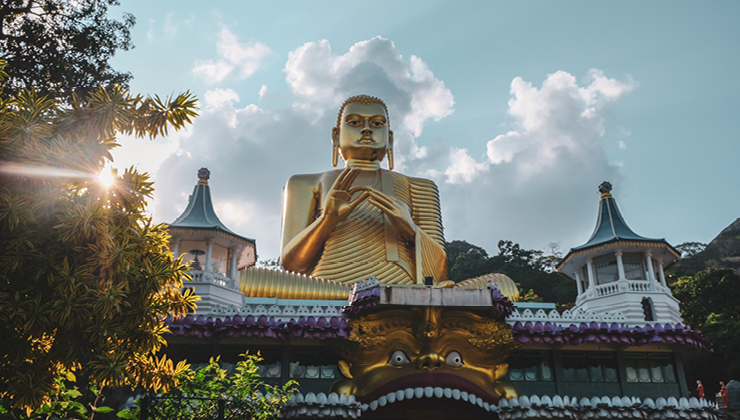Award winning filmmaker Fiona Lloyd-Davies introduces ‘Under the Shadow’, which tells the extraordinary story of Masika Katsuva, who, with just a small patch of land, commitment and passion, helped thousands of survivors of rape. Screening and Q&A with Fiona and guests on Tuesday, 6 June.

Laughter, vibrancy, vitality, energy.
These words are rarely used when describing the story of sexual violence in the Democratic Republic of Congo. Yet if one takes the time to look beyond the cliché of ‘darkness’, Eastern Congo is full of light – intense beauty, colour, intensity of life and yes, also intense brutality and violence. The most surprising and consistently unreported aspect of survivors of sexual violence is their vibrancy. Making a documentary film over a number of years allowed me the time to get to know a group of women survivors who gave me a three dimensional view of their experiences and their lives. This included laughter, vitality and most of all inspiration.
In Under the Shadow, a 60 minute documentary film I made over four years in South Kivu, Eastern Congo, I wanted to give these survivors their voice. To show them, not as victims, but as individuals caught up in a terrifying tsunami of violence and follow them as they rebuilt their lives. I found mothers who worried about their children, sisters sharing a joke, children who just wanted to play. Sexual violence wasn’t their only story, they had lives too which they were living.
Starting in 2010, one individual stood out, Masika Katsuva, herself a survivor of multiple rapes. Small in stature, she was a giant of an individual and for weeks at a time allowed me into her life and those who were drawn to her. This included following the women as they farmed a small parcel of land, as they prepared it for planting, sowing seeds and then at harvest.
 Filming the women farming was as inspiring as it was difficult. Their field was a small rectangle of earth at the apex of a mountain. My heart sank when Masika pointed to it and the women laughed at me – the ‘muzungu’ would surely never be able to climb it! As they made their way up the near vertical path, the women’s pagnes were luminous against the verdant green of the mountain’s natural vegetation. They encouraged me during the climb and at the summit, congratulated me for keeping up with them. Later during planting, they cheered and clapped when I dug and sowed some beans. Their tolerance and good humour at allowing me into their lives should not be underestimated. Most if not all these women were virtually starving – one woman showed me her collection of dead rats she’d tucked into the waistband of her skirt. ‘Could I bring them some from London?’ they asked. Most had never farmed before and were physically frail. Almost all were living in fear, displaced, ostracised by their family. They knew I would leave but were surprised and welcoming when I returned year after year. It built trust and with it, they opened their hearts to me.
Filming the women farming was as inspiring as it was difficult. Their field was a small rectangle of earth at the apex of a mountain. My heart sank when Masika pointed to it and the women laughed at me – the ‘muzungu’ would surely never be able to climb it! As they made their way up the near vertical path, the women’s pagnes were luminous against the verdant green of the mountain’s natural vegetation. They encouraged me during the climb and at the summit, congratulated me for keeping up with them. Later during planting, they cheered and clapped when I dug and sowed some beans. Their tolerance and good humour at allowing me into their lives should not be underestimated. Most if not all these women were virtually starving – one woman showed me her collection of dead rats she’d tucked into the waistband of her skirt. ‘Could I bring them some from London?’ they asked. Most had never farmed before and were physically frail. Almost all were living in fear, displaced, ostracised by their family. They knew I would leave but were surprised and welcoming when I returned year after year. It built trust and with it, they opened their hearts to me.
Masika’s centre was a few kilometres from a market town, Minova, cradled on the banks of Lake Kivu. In November 2012, during fighting between the M23 and the Congolese Army, several thousand government troops were withdrawn there. Angry and disillusioned the soldiers went on the rampage. At least 76 women and girls were raped. The government faced international pressure to respond swiftly and effectively. The charges included war crimes of rape and pillage. It was seen by local and international observers to be a test case. Many of the women had lost patience with the system. Would this trial prove to be the difference that could mean an end to this culture of impunity?
I returned to film women who’d fallen victim to the soldiers and to follow the trial. I also accessed soldiers who had raped. Their candour was both surprising and shocking. Far from home, having been forced to abandon their own wives and children, who ironically they feared would be raped by the enemy, they felt betrayed by their officers, side-lined and forgotten. They too wanted to be heard. They told me if their commanding officer, who’d raped a girl in front of them and then ordered them to do the same was arrested, they too would come forward. Their CO was still at large, so they hung back in the shadows.
The risk to the witnesses was so great they had to testify anonymously and were given a burka-type outfit that covered their entire face. The verdict was delivered on May 5th 2014. Of the 39 accused, only two low-ranking soldiers were convicted of one individual rape each.
The women had been let down once more. Yet through my film, I hope their vitality and resilience will continue to be heard.
The views, thoughts and opinions expressed in this blog post are those of the author(s) only, and do not reflect LSE’s or those of the LSE Centre for Women, Peace and Security.




